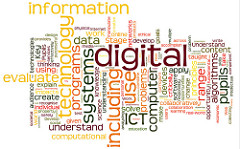“People
realise that only a stronger European Union can solve the problems we
face today”
Philippe De
Backer, 37, is one of the younger members of the European Parliament
(MEP). As a member of the Alliance of Liberals and Democrats for
Europe (ALDE), the group led by Guy Verhofstadt, De Backer is a part
of the most pro-European integration party in the Parliament. Europe
HOpes on 8 December had a talk with the Belgian MEP in his office in
the Altiero Spinelli building of the European Parliament in Brussels.
A conversation about frustrations, hopes and a Christmas wish for the
European Parliament.
Interview by Rick
Van Assel
It does not happen
very often that a PhD in biotechnology ends up being a member of the
European Parliament (MEP). However, for Philippe De Backer this is
the case. Fascinated by science, he started his academic career
studying biotechnology at Ghent University in Belgium, while at the
same time he became politically active. De Backer was a student’s
representative at Ghent University and during his PhD he became
president of the youth wing of Open VLD, a Belgian liberal political
party known for its pro-European integration stance. Thus, a
biotechnologist in the European Parliament (EP) does not seem so
strange after all. “As a scientist, I was in contact with
universities from different European countries when I was
participating in a European research project. So I was aware of the
scientific and economic opportunities that the European Union could
offer. At the same time, I saw the political difficulties of the EU,
that was in the process of its first big enlargement round. Those two
factors combined have made me want to become politically active on a
European level”, Philippe De Backer reveals. After completing his
PhD, he started working for an investment fund specialized in health
care for a few years. But in 2011, De Backer’s life drastically
changed when he entered the European Parliament, replacing an Open
VLD MEP that retired. Four years later, a combative and resolute De
Backer has high hopes for the European Union’s (EU) future. “The
EU is in crisis. Things are going bad on more than one issue. But at
the same time I am optimistic. A big part of the European population
realises that a strong European Union is necessary to tackle problems
such as climate change, terror and migration. You do not think that a
region as Flanders, or large countries as Germany and France, can
solve these issues on their own? However, therefore the European
Union needs to be given the instruments, so that we can implement
strong policies.”
The turnout for
the European elections has been decreasing ever since the first
election. In 1979 62% of European citizens showed up, whereas in 2014
a small 43% turned to vote. At the same time the European Parliament
has become an important co-legislator. How do you explain this
paradoxical evolution?PHILIPPE
DE BACKER: “I
think that people are disappointed, because they expected more from
the European integration project. We have promised economic stability
and growth, but the EU has not delivered on these fronts. There are
many explanations for these problems, but the main reason lies in the
fact that the EU is an unfinished project. Europe lacks the necessary
instruments to achieve such ambitious goals. It is still too
dependent on the goodwill of the member states. So I do understand
the disillusion of people. However, people do not see the advantages
of the European Union anymore either. They do not realise how easy it
is to cross boarders without passports or to be able to pay with a
single currency.”
Education might
also play an important role. Do you remember if you had any classes
on European integration during your time in secondary school?


















.jpg)



